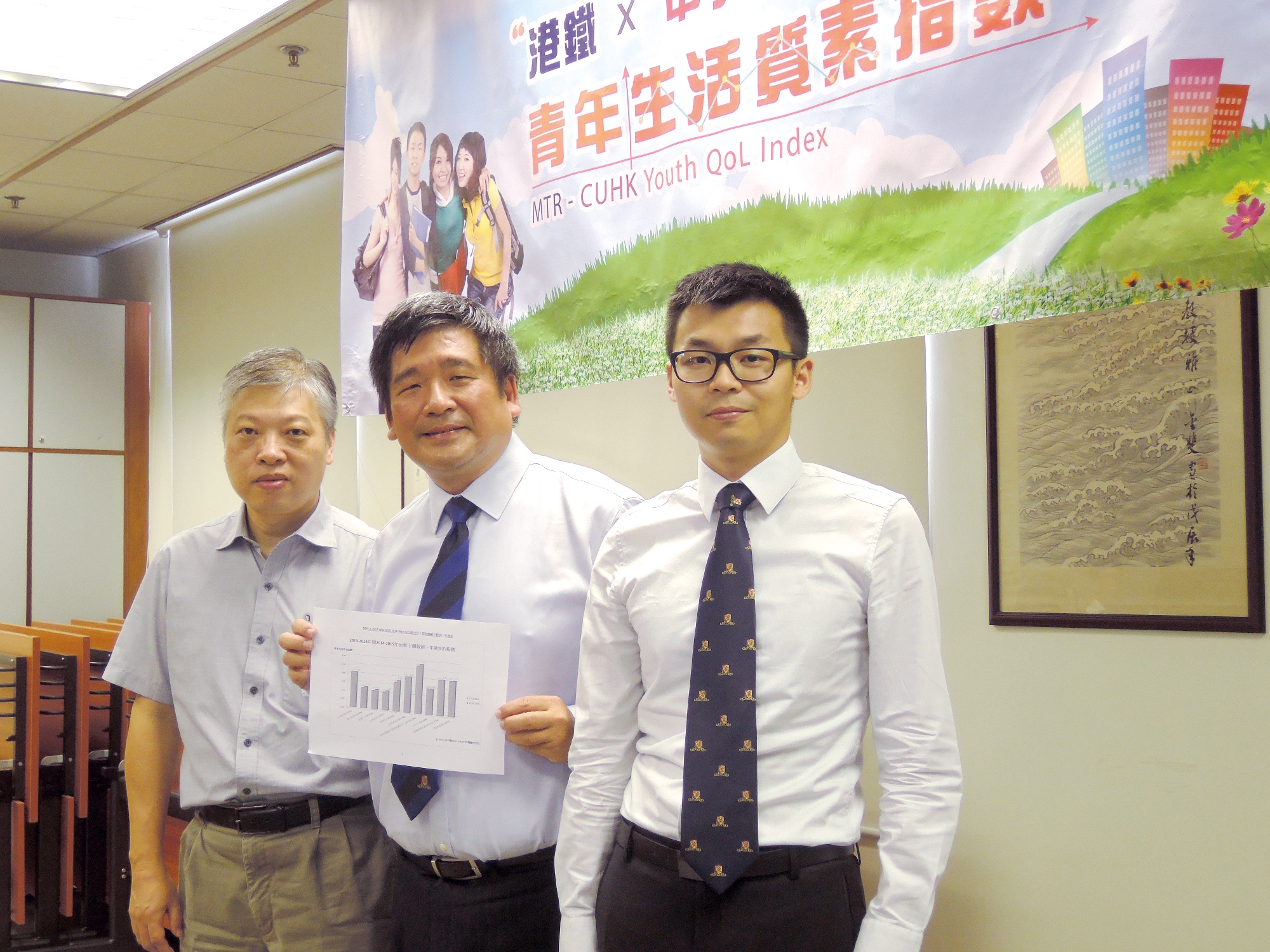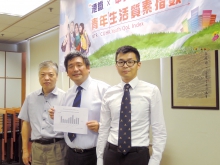CUHK
News Centre
Quality of Life of Youth in Hong Kong Slightly Declines in 2014/15 Four Dimensions Improve and Four Dimensions Worsen
The Centre for Quality of Life at The Chinese University of Hong Kong (CUHK) released the latest MTR-CUHK Youth Quality of Life Index today (13 July 2015). The result indicates that the overall quality of life of youth in Hong Kong has slightly declined in 2014/2015 as compared with the corresponding period last year.
The Index consists of 28 indicators that are grouped into 8 domains: Physical Health, Psychological Well-being, Society, Economics, Education, Politics, Living Environment, and Overall Well-being (Appendix 1). The indicators are selected according to their coverage, measurability, representativeness, and importance to the quality of life of youth in Hong Kong.
2012/2013 is the base year of the study, and the MTR – CUHK Youth Quality of Life Index for that year was set at 100. If the Index of a subsequent year is above 100, it indicates that the quality of life of youth in Hong Kong in that year is better than that of the base year. If the index is below 100, it reveals that the quality of life of youth in Hong Kong in that year is worse than that of the base year. If the Index is 100, it indicates that the youth’s quality of life in that year is the same as that of 2012/2013.
According to the latest MTR – CUHK Youth Quality of Life Index, the overall score in 2014/2015 is 100.65, a decrease of 0.59 points from the revised figure 101.24 in 2013/2014 (the figure has been revised based on the updates of governmental statistics) and an increase of 0.65 points from 2012/2013 (the index value of base year equals 100), indicating that there has been a drop in the quality of life of youth in Hong Kong in the past 12 months, even though it is still better than that of the base year (Appendix 2).
The latest index shows the domains of Society, Economics, Education, and Living Environment have improved, while the domains of Physical Health, Psychological Well-being, Politics, and Overall Well-being have declined (Appendix 2).
Compared with last year’s figures, 10 out of the 28 indicators have improved (Appendix 3), among which the ‘index of current economic conditions’ and ‘social services participation’ were the most noticeable. Other indicators like ‘drug abuse behavior’, ‘youth crime rate’ and ‘participation rate in UGC tertiary programs’ have also improved in the past 12 months.
17 out of the 28 indicators have worsened (Appendix 4), among which ‘government performance evaluation’ was the most noticeable. Other indicators, such as ‘exercise participation’, ‘public expenditure on education’, ‘satisfaction with youth policy’ and ‘perceived impact on policy’ have also become less desirable in 2014/15.
The compilation of the Index is sponsored by the MTR Corporation as part of its ongoing commitment to foster the development of the younger generation to meet future challenges. The Index is the only composite index to measure and keep track of the quality of life of youth in Hong Kong. Both the MTR Corporation and the Centre for Quality of Life, CUHK believe that the Index can provide policy makers and the community with a useful reference tool to devise appropriate policies and programmes for the betterment of youth and the society at large. It also enhances public understanding of issues that may affect quality of life of youth in Hong Kong.
For more information on the MTR – CUHK Youth Quality of Life Index, please visit The Centre for Quality of Life website: www.cuhk.edu.hk/hkiaps/qol/en/youth.html





